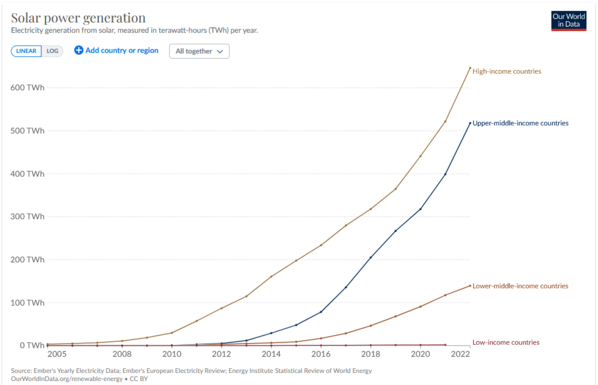Recent searches
Search options
"""
Economy Minister Robert Habeck has for months pushed for an energy subsidy scheme, arguing that German industry faces five tough years before the transition to renewable energies bears fruit. The top Green politician has warned that, without state support, "we will no longer have industry," as companies would shift operations to countries like France or the U.S., where energy prices are much lower.
"""
https://www.politico.eu/article/germany-energy-price-subsidy-industry-competition/
The panic about the economic stagnation is from the energy price shock (Russian gas disappeared) and the slow-down in China. But:
"These outside shocks have exposed cracks in Germany’s foundation that were ignored during years of success, including lagging use of digital technology in government and business and a lengthy process to get badly needed renewable energy projects approved."
https://apnews.com/article/germany-economy-energy-crisis-russia-8a00eebbfab3f20c5c66b1cd85ae84ed
@CelloMomOnCars One can only laugh at this point when reading passages like these:
"The government wants to have 215 GW of solar installed in Germany by 2030, more than tripling existing capacity in seven years."
Why laugh? Because 215 GW of #solar with 10% capacity factor (because it's Germany, not California) will roughly replace 20GW of #nuclear power that they retired since 2011. So many years lost...
The climate community tends to bash on Germany for having reduced its nuclear fleet after the Fukushima incident.
I'm looking for an article I once read that says it is exactly that event, and Germans' willingness to pay - through the nose - for renewable energy, that helped jumpstart the nascent commercial PV market. The rest is (Chinese) history.
I'll look a little harder for that article, it's interesting.
I take that back: in fact, German willingness to pay high prices for energy predates Fukushima. It started in 2004 when Germany introduced generous feed in tarriffs for rooftop solar.
"Germany’s deployment of wind and solar when the technologies were expensive is now widely celebrated as the reason why significant production capacity has been set up worldwide, leading to plummeting prices for the benefit of developing countries in particular."
https://energytransition.org/2016/01/how-germany-helped-bring-down-the-cost-of-pv/
BTW, I'm not sure if it's fair to say that growth of solar production has been "for the benefit of developing countries in particular".
See the attached chart.
That has been largely an effect of redlining former colonies. If you had to pay a - very large - premium on interest on your loans, you would also have a hard time getting your industrial sector going.
I'm not arguing with the data on the chart - I'm asking why that data is the way it is, while obviously the Global South has the superior insolation.
It's a version of thinking women can't be doctors or engineers, thereby wasting the talent of half the population.
We're in total agreement here. The only way to tackle #ClimateChange is to do it equitably.
So I only wanted to point out that saying that the increased #solar production has been "for the benefit of developing countries in particular" is disingenious. It *could* have been for the benefit of developing countries, it *should* have been, but it *wasn't*.
To me it's the same argument people bring up against #degrowth:
"What about the developing countries, you want to keep people in poverty, you eco-fascist!"
No, my sweet summer child, it's the so-called "developed" countries that need degrowth, that's who we're talking about.
I find that it's very often rich people propaganda that screams "think about the poor" whenever one casts doubts on their free market "solutions".
@jackofalltrades @CelloMomOnCars
It's a part of 'the climate deniers playbook': showing a starving african mother with 1 lightbulb in her hut and lamenting that only (cheap) fossil fuels will raise her out of poverty.
Absolutely disgusting when you remember that the fossil fuel industry has always played a huge part in imposing the kind of merciless capitalism that causes extreme poverty
https://nebula.tv/climatedeniersplaybook/
Thank you for the recommendation. Need to listen to this, especially two episodes caught my eye.
"Electric Cars Will Save Us" sound like a fun time.
"You Owe Your Life to Oil & Gas" should be good to challenge my preconceptions, because I think it may be true to some extent, or at the very least it's a complicated issue.


